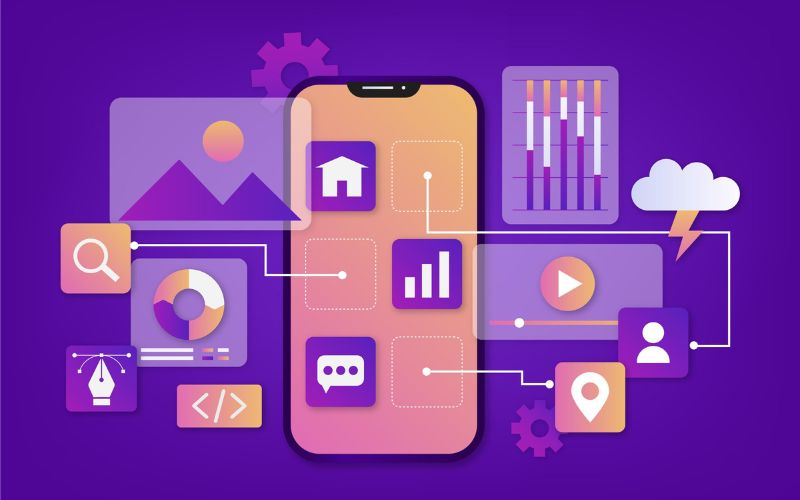In the modern business landscape, financial management is more complex than ever. With multiple transactions, diverse revenue streams, and strict compliance requirements, managing finances can be a daunting task. However, with the right tools, this process can be significantly simplified. Cutting-edge ERP accounting software is designed to streamline financial management, making it easier for businesses to stay on top of their finances while improving efficiency and accuracy.
Understanding ERP Accounting Software
ERP accounting software is a comprehensive financial management solution that integrates all financial processes into a single, unified platform. Unlike traditional accounting software, which operates in silos, ERP systems connect finance with other key business functions such as procurement, inventory management, human resources, and customer relationship management (CRM). This integration allows for seamless data flow and provides a holistic view of the organization’s financial health.
The Need for Streamlined Financial Management
In today’s fast-paced business world, the need for streamlined financial management cannot be overstated. Companies face numerous challenges, including:
- Complex Financial Transactions: Businesses often deal with complex transactions that require accurate tracking and reporting. Manual processes can lead to errors and inefficiencies.
- Regulatory Compliance: Keeping up with ever-changing regulations is a significant challenge for many businesses. Non-compliance can result in hefty fines and legal issues.
- Data Accuracy: Accurate financial data is crucial for making informed business decisions. Inaccurate data can lead to poor decisions and financial losses.
- Operational Efficiency: Managing finances manually is time-consuming and labor-intensive, reducing overall business efficiency.
- Scalability: As businesses grow, their financial management needs become more complex. A system that can scale with the business is essential for long-term success.
How ERP Accounting Software Streamlines Financial Management
Cutting-edge ERP accounting software addresses these challenges by providing a range of features and benefits that streamline financial management:
- Automation of Financial Processes: Accounting software automates routine financial tasks such as invoicing, payroll processing, and bank reconciliation. Automation reduces the need for manual data entry, minimizing errors and saving time.
- Real-Time Financial Data: With accounting software, businesses have access to real-time financial data. This allows for better decision-making and quicker responses to financial challenges.
- Integrated Financial Reporting: ERP systems provide integrated financial reporting tools that pull data from all areas of the business. This enables the creation of accurate and comprehensive financial reports with minimal effort.
- Enhanced Compliance Management: Accounting software includes tools for managing compliance with financial regulations. These tools help businesses stay up-to-date with regulatory changes and ensure that all financial records are accurate and audit-ready.
- Centralized Financial Data: All financial data is stored in a centralized database, making it easier to access and manage. This centralization improves data accuracy and reduces the risk of discrepancies.
- Scalable Solutions: ERP accounting software is designed to scale with your business. As your company grows, the system can be expanded to accommodate new financial processes and requirements.
Key Features of Cutting-Edge ERP Accounting Software
To effectively streamline financial management, cutting-edge accounting software should offer the following key features:
- Advanced Financial Reporting: The ability to generate detailed financial reports, including balance sheets, income statements, cash flow statements, and more.
- Budgeting and Forecasting Tools: Tools that allow businesses to set financial goals and forecast future financial performance.
- Multi-Currency and Multi-Language Support: For businesses operating internationally, support for multiple currencies and languages is essential for accurate financial management.
- Accounts Payable and Receivable Management: Automation of payables and receivables processes to ensure timely payments and collections.
- Tax Management: Tools for automating tax calculations and ensuring compliance with local tax regulations.
- Integration with Other Business Functions: Seamless integration with other business functions such as procurement, inventory management, and HR, allowing for a unified approach to financial management.
Benefits of Streamlining Finances with ERP Accounting Software
Implementing cutting-edge ERP accounting software offers numerous benefits that can have a significant impact on your business:
- Increased Efficiency: By automating financial processes and reducing manual tasks, accounting software increases overall efficiency, allowing your team to focus on more strategic activities.
- Improved Accuracy: Automation and centralized data storage improve the accuracy of financial records, reducing the risk of errors and ensuring that your financial data is reliable.
- Better Decision-Making: Access to real-time financial data and advanced reporting tools enables better decision-making, helping you respond quickly to financial challenges and opportunities.
- Cost Savings: Streamlined financial management reduces operational costs by minimizing errors, improving efficiency, and optimizing resource use.
- Enhanced Compliance: With tools for managing compliance, accounting software helps ensure that your business adheres to financial regulations, reducing the risk of fines and legal issues.
- Scalability and Flexibility: ERP accounting software is designed to grow with your business, providing the flexibility needed to adapt to changing financial management needs.
Choosing the Right ERP Accounting Software
Selecting the right ERP accounting software is crucial for achieving the benefits outlined above. Here are some factors to consider when making your decision:
- Business Needs: Assess your business needs and determine which financial processes require the most attention. This will help you identify the features that are most important for your business.
- Ease of Use: Choose a system that is user-friendly and easy to navigate. A complicated system can hinder adoption and reduce the effectiveness of the software.
- Customization Options: Look for software that can be customized to fit your specific business processes. Customization ensures that the system can meet your unique requirements.
- Integration Capabilities: Ensure that the accounting software can integrate with your existing systems and software. Seamless integration is essential for maximizing the benefits of the system.
- Vendor Support: Choose a vendor that offers comprehensive support and training services. Good support is crucial for a successful implementation and ongoing use of the software.
- Cost and ROI: Consider the total cost of ownership, including implementation, training, and maintenance. Evaluate the potential return on investment to ensure that the software will provide long-term value.
Future Trends in ERP Accounting Software
As technology continues to evolve, ERP accounting software will also advance, offering new features and capabilities. Some of the trends to watch for include:
- Artificial Intelligence and Machine Learning: AI and ML will increasingly be integrated into ERP systems, enabling predictive analytics, intelligent automation, and more personalized user experiences.
- Cloud-Based Solutions: The shift towards cloud-based ERP systems will continue, offering greater flexibility, scalability, and access to real-time data from anywhere.
- Mobile Accessibility: Mobile-friendly ERP systems will become more common, allowing users to manage finances and access data from their smartphones or tablets.
- Enhanced Security Features: As cyber threats continue to grow, ERP systems will incorporate more advanced security measures to protect sensitive financial data.
- Blockchain Integration: Blockchain technology has the potential to enhance transparency and security in financial transactions, making it an exciting area of development for ERP systems.
Conclusion
Streamlining your finances is no longer a challenge with cutting-edge accounting software. By automating financial processes, integrating various business functions, and providing real-time data, ERP accounting software offers a comprehensive solution for managing finances efficiently and accurately. Whether you are a small business looking to improve efficiency or a large enterprise seeking to optimize operations, accounting software can help you achieve your financial goals. By choosing the right solution and staying ahead of industry trends, you can ensure long-term success and financial stability for your business.











